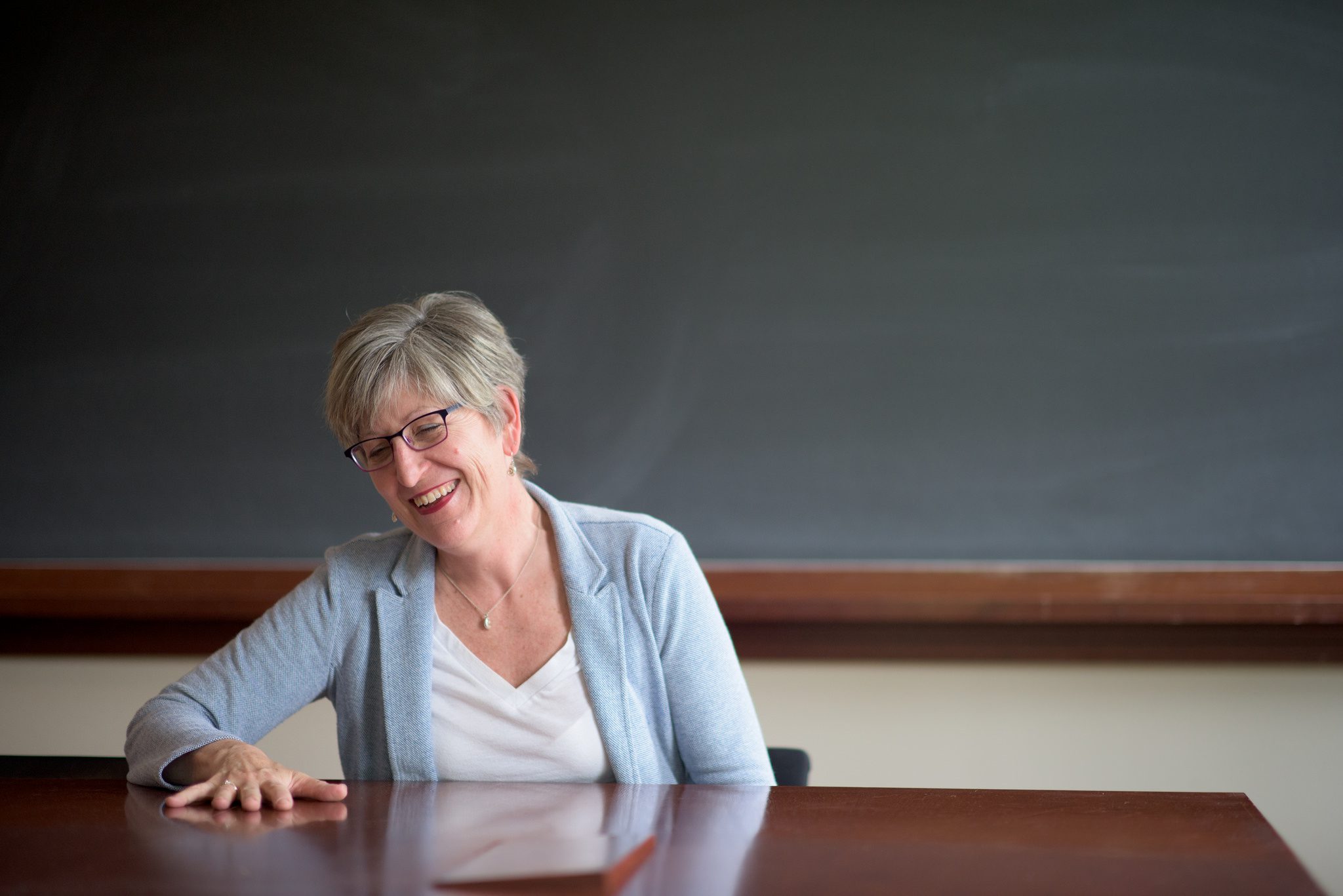This new Q&A series highlights the work of the Humanities Council’s current Old Dominion Research Professors. The professorship provides additional research time for Princeton faculty members and seeks to enhance the University humanities community more broadly.
This year, as a 2024-25 Old Dominion Research Professor in the Humanities Council, Sara S. Poor (German) is working on a book project titled “The Literary Agency of Medieval Women: Kunigund Niklasin (d. 1457) and the Library of St Catherine’s in Nuremberg.” The project elucidates a more inclusive theory of female agency, an expanded notion of authorship, and a nuanced appreciation of the important roles of late medieval women as writers.
Tell us why you chose your current research topic.
As I was doing research on the fifteenth-century German manuscripts transmitting a text known as the Sister Catherine Treatise, which is about a lay pious woman whose mystical experiences lead eventually to her teaching her teacher (her confessor) about God, I kept coming across the name of Kunigund Niklasin, the librarian and scribe of a Dominican convent in Nuremberg that had housed the largest library that we know of from the late middle ages.
It wasn’t until I was on a fellowship year at the National Humanities Center in North Carolina that I was able to look into her story more thoroughly and visit the archive in Nuremberg, where a large portion of this medieval library is still extant. The more I worked on what was going to be a chapter on Niklasin in a book about medieval women scribes, the more amazed I was at the amount of literary work she managed during her career at the convent, and eventually, I realized that I really needed a whole book to do her and her achievements justice.
What do you hope that this research will add to your field?
It may be surprising to some to know that more medieval manuscripts have survived in German-speaking lands than in most other European countries. My hope is to bring more awareness to medievalists and historians outside of German studies about the wealth of information available in German, Swiss, and Austrian archives, material which could vitally enrich and broaden the scope of what we know generally about literate life in the Middle Ages. Because there tends to be an assumption that women were oppressed and silenced under medieval Christianity, my other hope is to highlight women’s active and vital participation in what was a vibrant literary culture surrounding religious reform before the Reformation.
What’s one thing about your current project that you think would interest the public?
I think the public will be quite interested in the details of the intellectual life and achievements of this medieval woman. In particular, I imagine there will be interest in how Kunigund Niklasin went about organizing her convent’s library collection – from reading every book in the collection (probably close to 400 books), writing out contents labels and pasting them into each book, creating two inventories that also included lists of contents, and rationalizing the use of the library for the daily practice of table reading (the reading aloud of devotional texts at the main daily meal and community gatherings, readings that were keyed to what was happening that day in the liturgical calendar).
Tell us about your year so far as an Old Dominion Research Professor.
I spent the fall semester focusing entirely on completing revisions on the Niklasin book project. This total focus was essential to revising and refining the book and having the time and space for this focus felt like a complete luxury compared to my usual everyday life at Princeton.
At the same time, I have thoroughly enjoyed attending the weekly seminar at the Society of Fellows, where I have been inspired and awed by the brilliant presentations of the fellows, as well as by the incredible intellectual and supportive engagement of everyone around the seminar table.
I can honestly say that this year has been my most favorite and most productive sabbatical leave ever. Not having to move house for a residential fellowship is a big part of why I feel this way.
Tell us about a Humanities Council program or event that you attended this year.
I recently attended the [Council’s] Gauss Seminars in Criticism public lecture and lunch seminar with Elizabeth A. Wilson, which I really enjoyed, especially because it made me think in a couple of unexpected ways about agency, which is a central concept for my book.
Is there any other piece of your work (articles, research) that you’d like to highlight?
For the remainder of my Old Dominion year, I will be working on some commissioned articles, one of which will appear in the medieval studies journal, Speculum, later this year. But more importantly, this time will also allow me to begin thinking about what I might do next, which involves paying attention to what draws my interest and makes me ask questions.
Second only to finishing a book, this initial phase of letting oneself simply be curious is one of my favorite things about being a scholar. And I’m so grateful to the Humanities Council for providing me with the time and space to do this.
















